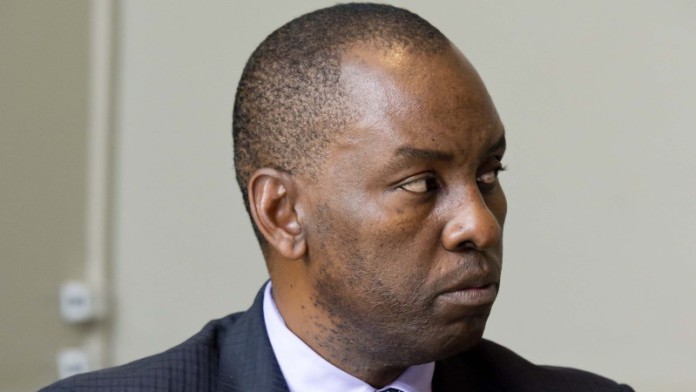
SOUTH Africa mines minister, Mosebenzi Zwane, said he was concerned Sibanye Gold and AngloGold Ashanti were refusing to adhere to the country’s laws in respect of mine health and safety.
In a statement issued by the Department of Mineral Resources (DMR) on Wednesday evening, Zwane said that utterances in the media by the firms suggested “… that they are refusing to comply with the mining laws of the country”.
He was referring to Section 54 notices of which AngloGold and Sibanye have been critical and which has seen both turn to the courts for legal clarity on whether the DMR has always been fair in issuing them.
Section 54 refers to a part of the Mine, Health and Safety Act which entitles the government to temporarily shut a mine in the event of a health and safety abuse, or when an accident occurs.
Whilst Section 54s are valid in certain instances, a Labour Court decision in favour of AngloGold in November showed the DMR had not operated fairly in the temporary closure of Kopanang.
In that particular court hearing, Judge Andre van Niekerk ruled that DMR officials had ignored “proportionality” when it issued a Section 54 notice shutting the mine in October.
Sibanye had drawn up an affidavit in August for the Labour Court, eventually not heard, in which it also spelled out what appeared to have been unfair implementation of a Section 54 at Kroondal Platinum Mine.
It was on the basis of this affidavit that Sibanye subsequently took the extraordinary step of suing Zwane and other DMR officials for R26m in damages.
Referring to Sibanye, Zwane said he had not yet received the summons and could, therefore, not comment directly. But he was scathing of the two gold companies.
“Profit-making and the health and safety of workers are not mutually exclusive and it is unacceptable that these companies are choosing to cheapen the lives of mineworkers in this manner,” said Zwane.
He said that the platinum and gold industries were the two biggest contributors by sector to mine fatalities in 2016, adding that: “Together, these two companies were responsible for the death of nineteen (19) mineworkers in 2016”.
“Health and safety should be a priority for all stakeholders in the industry, and we are clear that if companies cannot mine safely, they should not be mining at all, and should allow other potential holders who will respect the laws of our country, to continue mining,” he said.










